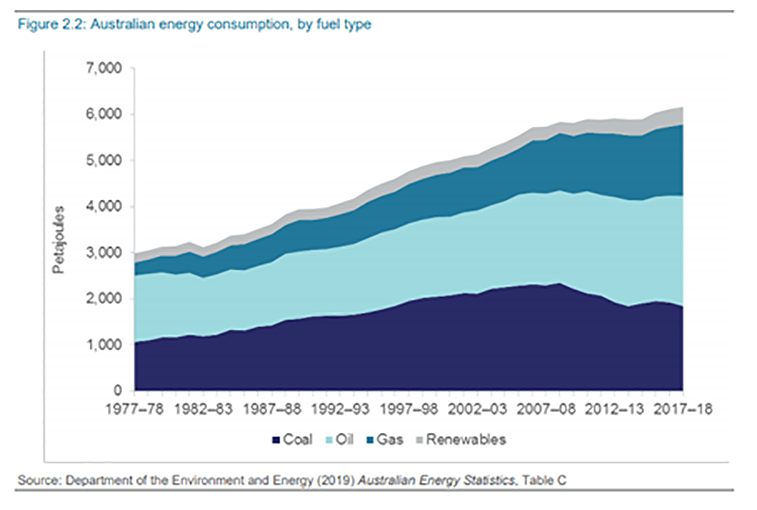Oil and gas
What is petroleum?
Petroleum, a general term used for oil and natural gas, plays an important role in our community.
Petroleum can occur in the earth in liquid, gas, or solid form.
Oil and gas are known as fossil fuels because they are formed from the decomposition and pressurisation of algae, plankton and other organisms. This process forms hydrocarbons, which are compounds consisting entirely of hydrogen and carbon that are powerful combustible fuels.
Individual deposits of oil and gas can also contain other compounds, but it is the hydrocarbons that make them valuable.
Oil and gas account for over 60% of all energy consumption in Australia.
 Find out more about oil and gas, including where they come from, how they are formed and how they get from the sub-surface to your home.
Find out more about oil and gas, including where they come from, how they are formed and how they get from the sub-surface to your home.
- What is natural gas?
- What is oil?
- What is liquefied natural gas (LNG)?
- What is coal seam gas (CSG)?
- What is hydraulic fracturing – or fracking?
- Types of gas wells
- Uses of natural gas and oil
Energy Information Australia, an initiative of APPEA providing information about Australia’s oil and gas industry, provides further explanations: https://energyinformationaustralia.com.au/oil-and-gas-explained/

